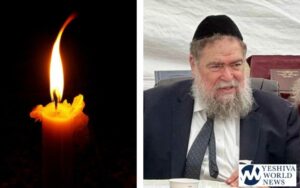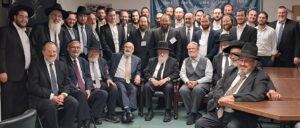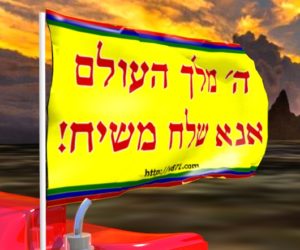After endless hours of planning and months of preparation, the eagerly awaited 95th annual convention of Agudath Israel of America is about to unfold with a full schedule of programming featuring prominent speakers who will be joining the convention from all across the globe. While the convention is completely sold out, numerous sessions are open to the public who are invited to join the landmark event in person at the Crowne Plaza Stamford or through the Agudah’s dedicated Livestream. Programming begins on Thursday afternoon promptly at 4:45 PM with a pair of concurrent sessions. Rabbi Yitzchok Pindrus, Deputy Mayor of Yerushalayim, and Rabbi Avi Schnall, Agudath Israel of America’s New Jersey director, will offer an in depth look at managing reactions as existing Jewish communities continue to spread beyond their borders. Also on the agenda is a session on future leadership with Boruch Ber Bender, president, Achiezer, Rabbi Yehuda Kaszirer, executive director, Bikur Cholim of Lakewood, Yisroel Besser, contributing editor, Mishpacha Magazine, and Charlie Harary, a highly regarded lecturer and business executive. At 6 PM, sessions will address maintaining our standards of ruchniyus in today’s distraction-filled world, adapting business strategies in our personal lives and learning to recognize the signs of at-risk behavior. Featured speakers will include Rabbi Mordechai Becher, senior lecturer, Gateways, Rabbi Mordechai Finkelman, Mashgiach Ruchani, Yeshivas Ohr HaChaim, Rabbi Ilan Meirov, director, Chazaq, Charlie Harary, Naftali Horowitz, managing director, JP Morgan, Rabbi Shmuel Berkovic, S’gan Menahel, Yeshiva Ketana of Passaic, Yaakov Bess, a Minyan Shelanu volunteer and Dr. Shloime Zimmerman, a clinical psychologist and Amudim board member. The highly anticipated Thursday night keynote session will begin promptly at 7:30 PM with Rabbi Shmuel Kamenetzky, Rosh HaYeshiva,Yeshiva Gedola of Philadelphia, Rabbi Elya Brudny, Rosh Yeshiva, Brooklyn’s Mirrer Yeshiva, and Dayan Yonasan Abraham of the London Beis Din delving into the convention theme of Together We Will. The keynote session will also include remarks by Rabbi Dovid Schnell, convention co-chairman and president emeritus, Agudath Israel of Illinois. Programming will continue at 10 PM with additional timely topics. Rabbi Shlomo Lewenstein of Lakewood, Dr. David Lieberman, a well known author, speaker and consultant, and Rabbi Avi Neuberger, Rav, Congregation Shaarei Tefillah in New Hempstead, will offer important insights to making successful shidduchim. Rabbi Eliezer Feuer, Rav of Young Israel of Bayswater and Rabbi Paysach Krohn, noted author, lecturer and mohel, will address managing emotional distress, both in ourselves and in others. An open Q&A session moderated by Yisroel Besser featuring Rabbi Brudny and Rabbi Mordechai Respler, Rosh Yeshiva, Mesivta of Long Beach, will also take place during the same time slot as will the Agudah Live broadcast with Rabbi Avi Schnall and Rabbi Shlomo Soroka, Agudath Israel of Illinois’ director of government affairs, featuring interviews, a session recap and other contemporary issues throughout the convention. A short Friday still leaves times for plenty of morning enlightenment and the first group of concurrent sessions will kick off at 9:45 AM. Rabbi Yaakov Perlow, the Novominsker Rebbe, Dr. Irving Lebovics, Agudath Israel of California’s president, and Rabbi Yitzchok Pindrus will take a look at ongoing clashes that threaten to undermine the integrity of Eretz Yisroel, while Rabbi Mordechai Becher and Rabbi Ari Neuwirth, Menahel, Mesivta Derech HaTorah will talk about infusing our yiddishkeit with new energy. A second round of sessions will



































